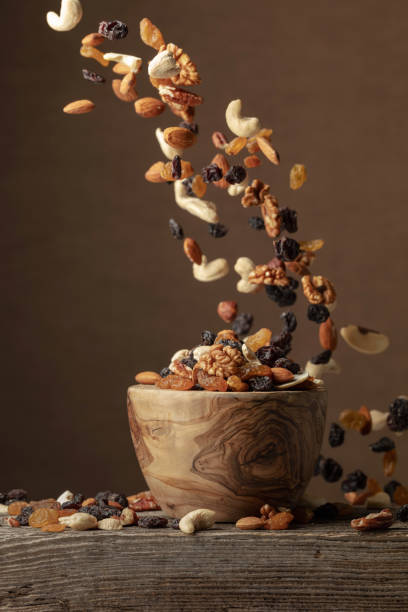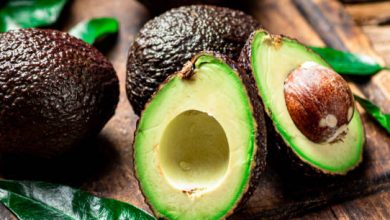
Dry fruits, often referred to as dried fruits or nuts, have been cherished for centuries due to their exceptional taste and immense nutritional value. These concentrated pockets of nature’s goodness are packed with essential nutrients, vitamins, and minerals that provide a plethora of health benefits. Whether enjoyed as a snack or incorporated into various culinary creations, dry fruits have earned their place as a dietary staple worldwide.
In this article, we will delve into the fascinating world of dry fruits, exploring their origins, nutritional content, and the numerous advantages they offer for overall health and well-being. From improving heart health to enhancing cognitive function, dry fruits have a lot to offer. So, let’s unravel the secrets of these nutritional treasures.
The Origins of Dry Fruits
The practice of drying fruits and nuts dates back thousands of years, with roots in various cultures around the world. It was initially employed as a method of preserving the bountiful harvests of fruits and nuts, ensuring a stable source of nutrition throughout the year. Over time, this process evolved, and today, we have a wide variety of dried fruits and nuts available, each with its unique flavor and nutritional profile.

Common Types of Dry Fruits
- Almonds: Almonds are a rich source of vitamin E, fiber, and healthy fats. They promote heart health, aid in weight management, and support skin health.
- Walnuts: Walnuts are packed with omega-3 fatty acids, antioxidants, and protein. They are known for their brain-boosting properties and may reduce the risk of chronic diseases.
- Raisins: Raisins are dried grapes and are loaded with natural sugars, fiber, and essential minerals like potassium and iron. They provide quick energy and support digestive health.
- Dates: Dates are high in dietary fiber, potassium, and various vitamins and minerals. They are excellent for bone health and digestion.
- Apricots: Dried apricots are a great source of vitamin A, potassium, and dietary fiber. They promote eye health and aid in digestion.
- Prunes: Prunes, dried plums, are renowned for their digestive benefits due to their high fiber content. They also provide vitamins A and K.
- Pistachios: Pistachios are rich in protein, fiber, and healthy fats. They promote heart health, weight management, and eye health.
- Cashews: Cashews are packed with vitamins, minerals, and healthy fats. They support heart health, bone health, and skin health.
- Cranberries: Dried cranberries are known for their antioxidant properties and high vitamin C content. They are beneficial for urinary tract health.
- Figs: Figs are a good source of dietary fiber, vitamins, and minerals. They support digestive health and may help regulate blood sugar levels.

Nutritional Powerhouses
Dry fruits are often dubbed “nutritional powerhouses” for good reason. They are concentrated sources of essential nutrients, including vitamins, minerals, and healthy fats, which provide numerous health benefits:
- Rich in Antioxidants: Dry fruits are loaded with antioxidants that help combat free radicals in the body. This, in turn, may reduce the risk of chronic diseases and slow down the aging process.
- Excellent Source of Fiber: Fiber is essential for digestive health. Dry fruits are rich in dietary fiber, which aids in preventing constipation and promoting regular bowel movements.
- Heart-Healthy Fats: Many dry fruits, such as almonds and walnuts, are abundant in healthy fats, including monounsaturated and polyunsaturated fats. These fats are known to support cardiovascular health by reducing bad cholesterol levels and lowering the risk of heart disease.
- Essential Vitamins and Minerals: Dry fruits contain a wide range of vitamins and minerals that are crucial for overall health. For example, they are often high in vitamin E, which is essential for skin health and acts as a potent antioxidant.
- Natural Sugars: While dry fruits do contain natural sugars, they are a healthier alternative to refined sugars. The natural sugars are accompanied by fiber, vitamins, and minerals, which help regulate blood sugar levels.
- Weight Management: Contrary to the misconception that dry fruits lead to weight gain, they can be beneficial for weight management when consumed in moderation. The fiber and protein in dry fruits help keep you feeling full, reducing overall calorie intake.
- Bone Health: Certain dry fruits, like figs and dates, are rich in calcium and phosphorus, which are essential for maintaining strong and healthy bones.

Health Benefits of Dry Fruits
Now that we have a better understanding of the nutritional composition of dry fruits, let’s explore the specific health benefits they offer:
Improved Heart Health:
Dry fruits like almonds, walnuts, and pistachios are packed with heart-healthy fats, fiber, and antioxidants. These components help lower bad cholesterol levels, reduce inflammation, and lower the risk of heart disease.
Enhanced Digestive Health:
The high fiber content in dry fruits promotes digestive regularity. Prunes, in particular, are renowned for their natural laxative effect, making them an excellent choice for individuals dealing with constipation.
Better Bone Health:
Figs and dates are rich in calcium and phosphorus, two minerals crucial for bone health. Regular consumption of these dry fruits can help prevent conditions like osteoporosis.
Brain Boost:
Omega-3 fatty acids found in walnuts and almonds are known to support cognitive function and may even help reduce the risk of age-related cognitive decline.
Weight Management:
Contrary to popular belief, the moderate consumption of dry fruits can aid in weight management. The fiber and protein content in these snacks help control appetite and reduce calorie intake.
Skin and Hair Health:
Vitamins and antioxidants in dry fruits, such as vitamin E, promote healthy skin and hair. Including them in your diet can lead to improved skin elasticity and a youthful glow.
Blood Sugar Regulation:
While dried fruits contain natural sugars, their fiber content slows down sugar absorption, helping stabilize blood sugar levels. This can be particularly beneficial for individuals with diabetes.
Enhanced Immune Function:
The vitamins and minerals present in dry fruits, such as vitamin C and zinc, play vital roles in supporting immune function. Regular consumption can help bolster your body’s defense against infections.
Improved Vision:
Some dry fruits, like apricots, are rich in vitamin A, which is essential for good vision and maintaining eye health.
Stress Reduction:
Magnesium, present in many dry fruits, has been linked to reduced stress and anxiety. It helps relax muscles and promotes a sense of calm.

Incorporating Dry Fruits into Your Diet
Now that we understand the numerous benefits of dry fruits, let’s explore some creative ways to incorporate them into your daily diet:
- Snacking: It makes for an excellent on-the-go snack. Carry a small pouch of mixed nuts and dried fruits in your bag for a nutritious and satisfying snack between meals.
- Breakfast Boost: Sprinkle chopped almonds, walnuts, or raisins on your morning cereal or oatmeal for an added nutritional punch.
- Smoothies: Blend dried fruits like dates, apricots, or figs into your smoothies for natural sweetness and extra fiber.
- Baking: Incorporate chopped nuts and dried fruits into your baked goods, such as muffins, cookies, and bread, for a delightful texture and flavor.
- Salads: Add a handful of toasted nuts or dried cranberries to your salads for a crunchy and flavorful twist.
- Yogurt Parfaits: Layer yogurt with dried fruits, nuts, and honey for a delicious and nutritious parfait.
- Trail Mix: Create your own trail mix by combining various dried fruits, nuts, and seeds. It’s an ideal snack for hikes and outdoor activities.
- Energy Bars: Make homemade energy bars using a mixture of dried fruits, nuts, and a binding agent like honey or nut butter.
- Nut Butter: Try almond or cashew butter as a spread on whole-grain toast or as a dip for apple slices.
- Stuffed Dishes: Use dried fruits like apricots or prunes to stuff poultry or meat dishes, adding a burst of flavor and moisture.

Conclusion
Dry fruits are indeed a nutritional treasure trove, offering a myriad of health benefits that encompass everything from heart health to cognitive function. Their rich nutrient profiles, including antioxidants, fiber, healthy fats, vitamins, and minerals, make them a valuable addition to any diet.
However, it’s crucial to consume dry fruits in moderation, as they can be calorie-dense due to their concentrated nature. Be mindful of portion sizes to reap the benefits without overindulging.
So, the next time you reach for a handful of dry fruits, remember that you’re not just enjoying a delicious snack; you’re also nourishing your body with a bounty of nutrients that can contribute to a healthier, happier life.





